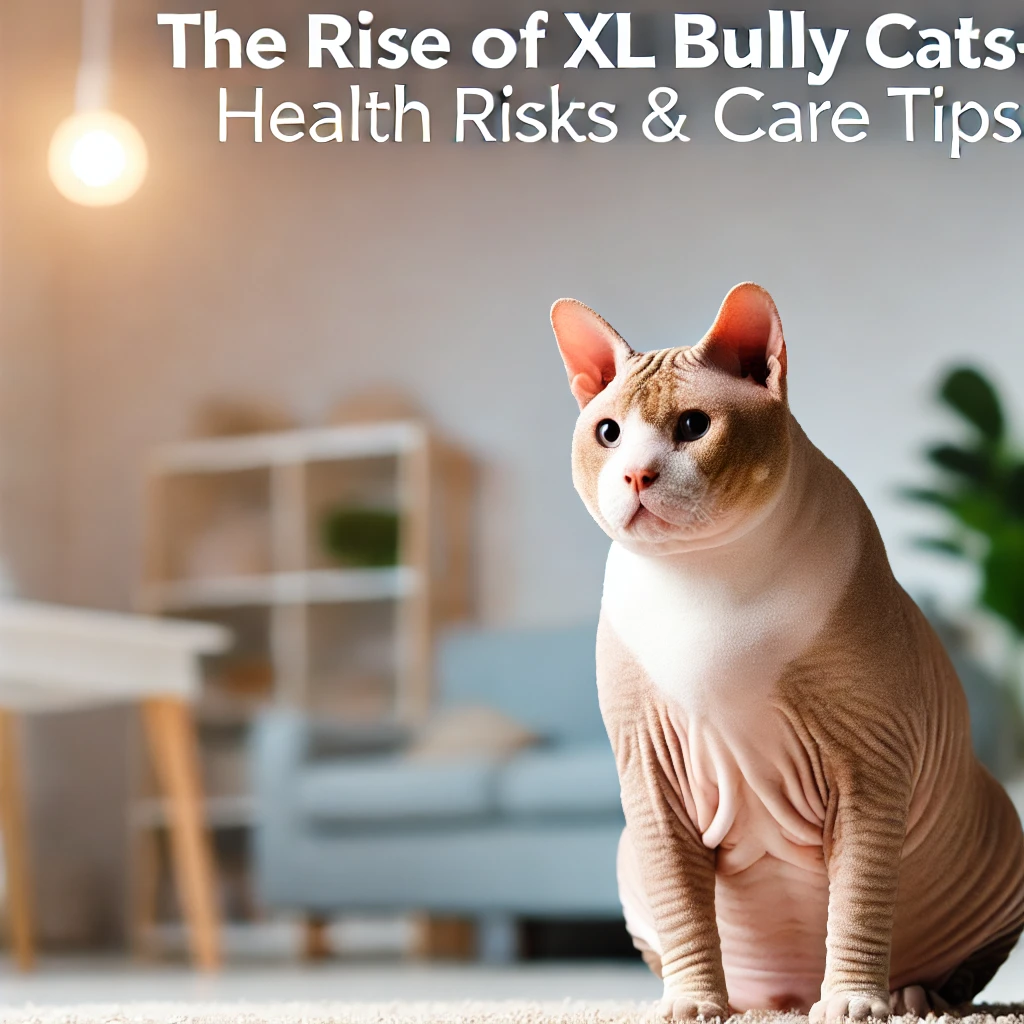
Experts Warn About the Rise of XL Bully Cats – Risks and Care Tips
What Are XL Bully Cats?
XL Bully Cats, a mix between the Sphynx and Munchkin breeds, are gaining popularity for their unique look. They feature hairless bodies and short legs, often resembling the much-debated XL Bully dogs. But while their distinctive appearance has created a trend, experts warn that this breed faces significant health issues.
Health Risks Facing XL Bully Cats
The lack of fur makes these cats more vulnerable to skin infections, sunburn, and respiratory problems. Without natural body temperature regulation, XL Bully Cats are prone to overheating and respiratory infections, especially as kittens.
Additionally, their short legs, a trait from the Munchkin breed, often lead to joint strain, arthritis, and mobility problems. These cats may struggle with everyday activities like jumping and climbing, which are essential for their physical and mental well-being.
Ethical Concerns in Breeding XL Bully Cats
According to animal welfare organizations like the RSPCA, breeding for aesthetic purposes has led to severe health risks. Dr. Dan O’Neill from the Royal Veterinary College highlights that XL Bully Cats may live much shorter lives—averaging only 6.7 years, compared to 11.7 years for most cats.
Animal behavior experts like Dr. Grace Carroll emphasize the importance of ethical breeding, advising prospective pet owners to avoid supporting breeds with exaggerated traits. Instead, they encourage people to adopt rescue cats or opt for more natural, healthier breeds.
Caring for an XL Bully Cat
If you already own an XL Bully Cat or are considering adopting one, it’s crucial to provide specialized care. Ensure that they have a balanced diet, regular vet check-ups, and avoid excessive sun exposure to protect their sensitive skin. Additionally, low-impact exercise and joint supplements may help reduce the risk of arthritis and other joint issues.
Adoption Over Breeding
Animal experts are calling on potential owners to consider adopting cats from shelters rather than purchasing from breeders focusing on aesthetics. The RSPCA has urged cat lovers to adopt healthy, loving cats that need homes, rather than contributing to the demand for extreme breeds.
Not only does adoption save lives, but it also helps reduce the strain on shelter systems and promotes healthier, ethical pet ownership practices.





